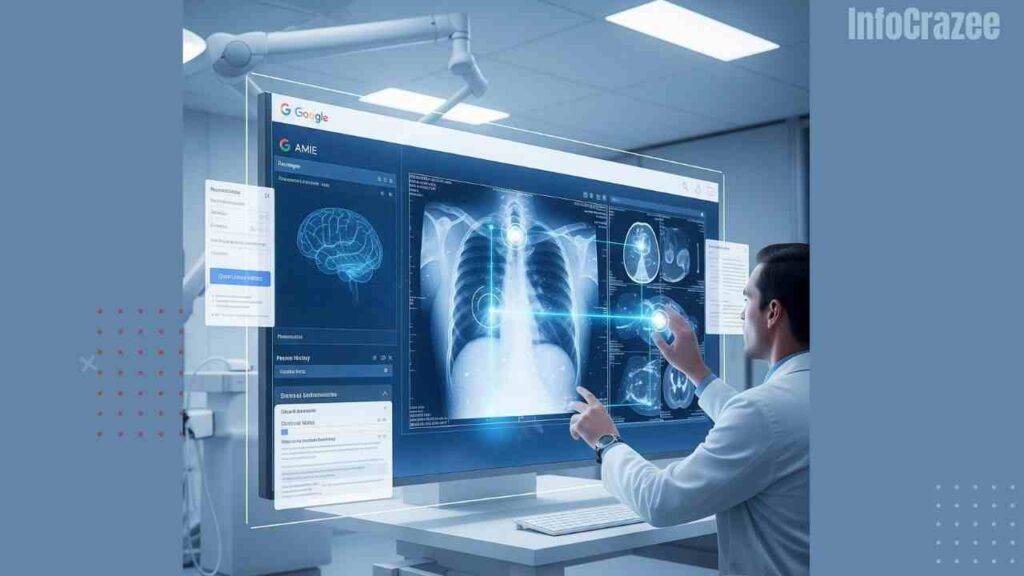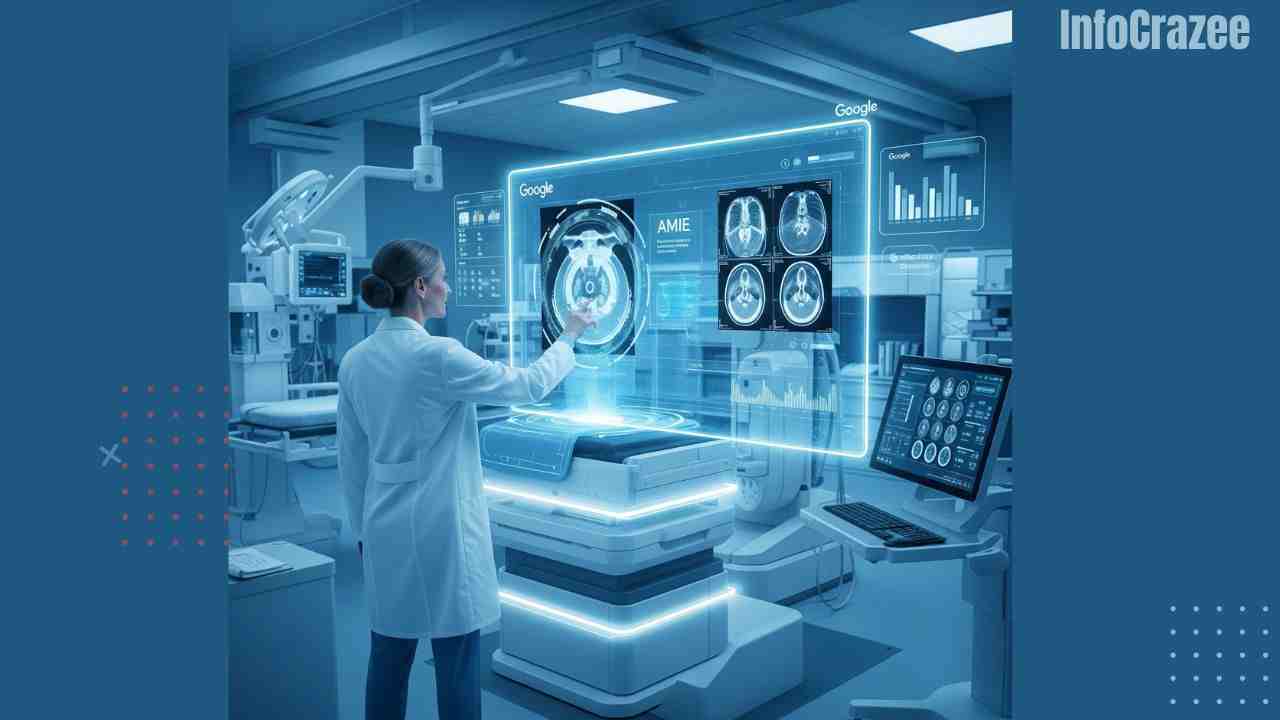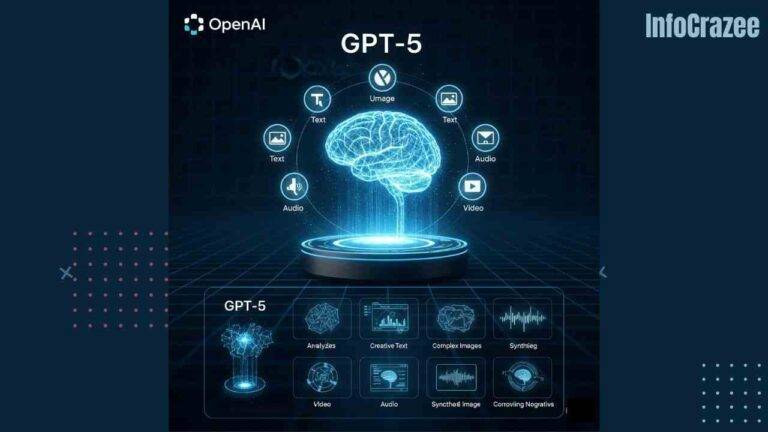Google’s AMIE AI Could Save Lives with Smarter Medical Imaging
The Rise of AI in Healthcare
Artificial intelligence is reshaping healthcare, promising faster diagnoses, personalized treatments, and reduced medical errors. As hospitals worldwide grapple with overworked staff and rising patient demands, AI tools are stepping in to bridge the gap. The global AI healthcare market is expected to reach $187 billion by 2030, growing at a 37% annual rate [GlobeNewswire, May 23, 2025]. From analyzing patient data to assisting in surgeries, AI is becoming a trusted ally for doctors. Google, a pioneer in AI innovation, has just unveiled a game-changing tool that could redefine medical diagnostics: AMIE, the Artificial Medical Intelligence Engine. Launched on May 26, 2025, this AI is set to transform how doctors interpret medical imaging, potentially saving countless lives.
New Update: AMIE’s Breakthrough in Medical Imaging
Google’s AMIE, announced today, is an AI designed to analyze medical imaging—X-rays, MRIs, CT scans—with unprecedented accuracy. Unlike traditional diagnostic tools, AMIE integrates multimodal data, combining imaging with patient histories and clinical notes to deliver comprehensive insights. According to X posts and early reports, AMIE can detect subtle anomalies, like early-stage tumors or neurological conditions, that human eyes might miss. Tested in select hospitals in 2025, AMIE processes scans in real time, offering doctors actionable recommendations within seconds. Google claims AMIE outperforms existing AI models by 15% in diagnostic accuracy, thanks to its advanced neural networks and training on diverse datasets [X posts, May 26, 2025]. This breakthrough builds on Google’s earlier DeepMind work, which revolutionized retinal scan analysis, and signals a new era for AI-driven healthcare.

Use Cases: Transforming Diagnostics Across Specialties
Oncology
In cancer care, AMIE’s ability to spot tiny irregularities in scans could lead to earlier diagnoses, significantly improving survival rates. For example, in trials at Stanford Medical Center, AMIE identified lung cancer nodules missed by radiologists in 12% of cases, according to preliminary data shared on X [May 26, 2025]. By cross-referencing imaging with patient records, AMIE flags high-risk cases for immediate review, reducing delays in treatment.
Neurology
For neurological disorders like Alzheimer’s or stroke, AMIE’s real-time analysis is a game-changer. It can detect micro-bleeds or early signs of dementia in brain scans, enabling timely interventions. In a UK hospital pilot, AMIE assisted neurologists by prioritizing urgent cases, cutting diagnosis times by 30%. This speed is critical in emergencies, where every minute counts.
Rural Healthcare
AMIE’s impact extends to underserved areas. Rural clinics, often lacking specialized radiologists, can use AMIE to provide expert-level diagnostics remotely. Integrated with cloud-based platforms, AMIE allows doctors to upload scans and receive instant analyses, bridging the gap in healthcare access. A pilot in India showed AMIE improving diagnostic accuracy in rural hospitals by 25%.
Future Outlook: A New Standard for Healthcare?
AMIE’s launch raises exciting possibilities for the future of medicine. Google plans to expand AMIE’s capabilities to include predictive analytics, forecasting patient outcomes based on imaging and lifestyle data. By 2027, AMIE could be integrated into wearable devices, alerting users to health risks in real time [X posts, May 26, 2025]. However, challenges loom: data privacy concerns, especially after recent legal battles over AI training data [Reuters, May 23, 2025], and the need for regulatory approval under frameworks like the EU’s AI Act could slow adoption. Despite these hurdles, AMIE’s potential to standardize high-quality diagnostics globally is undeniable. Could AI like AMIE become the backbone of future healthcare systems, working alongside doctors to save lives?
Conclusion: AI-Powered Healthcare Is Here to Stay
Google’s AMIE is a bold step toward a future where AI doesn’t just assist doctors—it transforms patient care. By making medical imaging smarter, faster, and more accessible, AMIE could reduce errors, save lives, and bring expert diagnostics to every corner of the world. As AI continues to evolve, the line between human and machine expertise is blurring, and the results are nothing short of revolutionary. The future of healthcare isn’t just digital—it’s intelligent.






